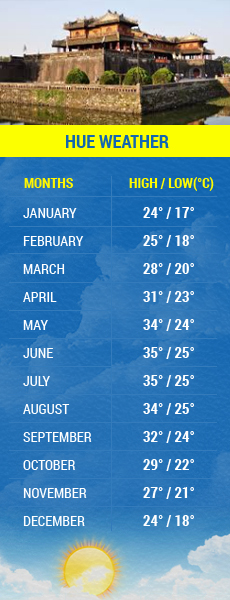Along with Perfume River, Ngu Binh Mountain is a wonderful symbol of Hue, an ideal destination for visitors who love nature, and want to enjoy the fresh climate in here.

Ngu Binh Mountain is about 3km from Hue city. Ngu Binh is the majestic mountain with 105m in height, the trapezoid shape, and flat peak, protecting Hue citadel from the period of Nguyen Dynasty. The two sides of Ngu Binh have two small mountains called Ta Bat Son and Huu Bat Son that the Nguyen dynasty was established, and decided to build as the solid protection wall for the area.

Ngu Binh Mountain is the second priceless natural gift of creativity, intertwined with the Perfume River to create the charming beauty of Hue. From ancients until now, many people choose to visit Ngu Binh Mountain as the place to enjoy the beautiful nature of Hue. On beautiful days, standing at the top of Ngu Binh mountain, tourists can capture the panoramic view of the city with magnificent palaces, ancient pagoda roofs and the rolling blue water of the Perfume River. Right before the Ngu Binh Mountain are the hills, the pine forest in a large delta of the districts: Huong Thuy, Phu Vang, Huong Tra … Looking to the East, the sandy white strip is away from Thuan An door with the deep blue of the East Sea … will be the most enchanting beauty that leaving unforgettable memories in tourists’ mind.

A few kilometers from Ngu Binh Mountain is Vong Canh Hill, another scenic spot of Hue, standing gracefully on the Perfume River, overlooking Ngoc Tran Mountain. From the Vong Canh hill can see the gardens of green fruits of the areca, orange, tangerine, tea, …, the tile roof of gray pagoda, ancient tombs. The Perfume River is like a soft silk waving around the foot of the hill … Visitors have the opportunity to come here at dawn fog or at sunset will understand the truly romantic beauty in here.
Let’s come to Ngu Binh mountain and experience the romantic beauty of Hue!\
Explore more places: Perfume River; Hue Garden Houses; Vong Canh Hill; Hue Citadel; Thien Mu Pagoda; Hue Imperial Museum of Royal Antiquity; Thuy Bieu Eco village; Bach Ma National Park; Dong Ba market; Truong Tien Bridge























































